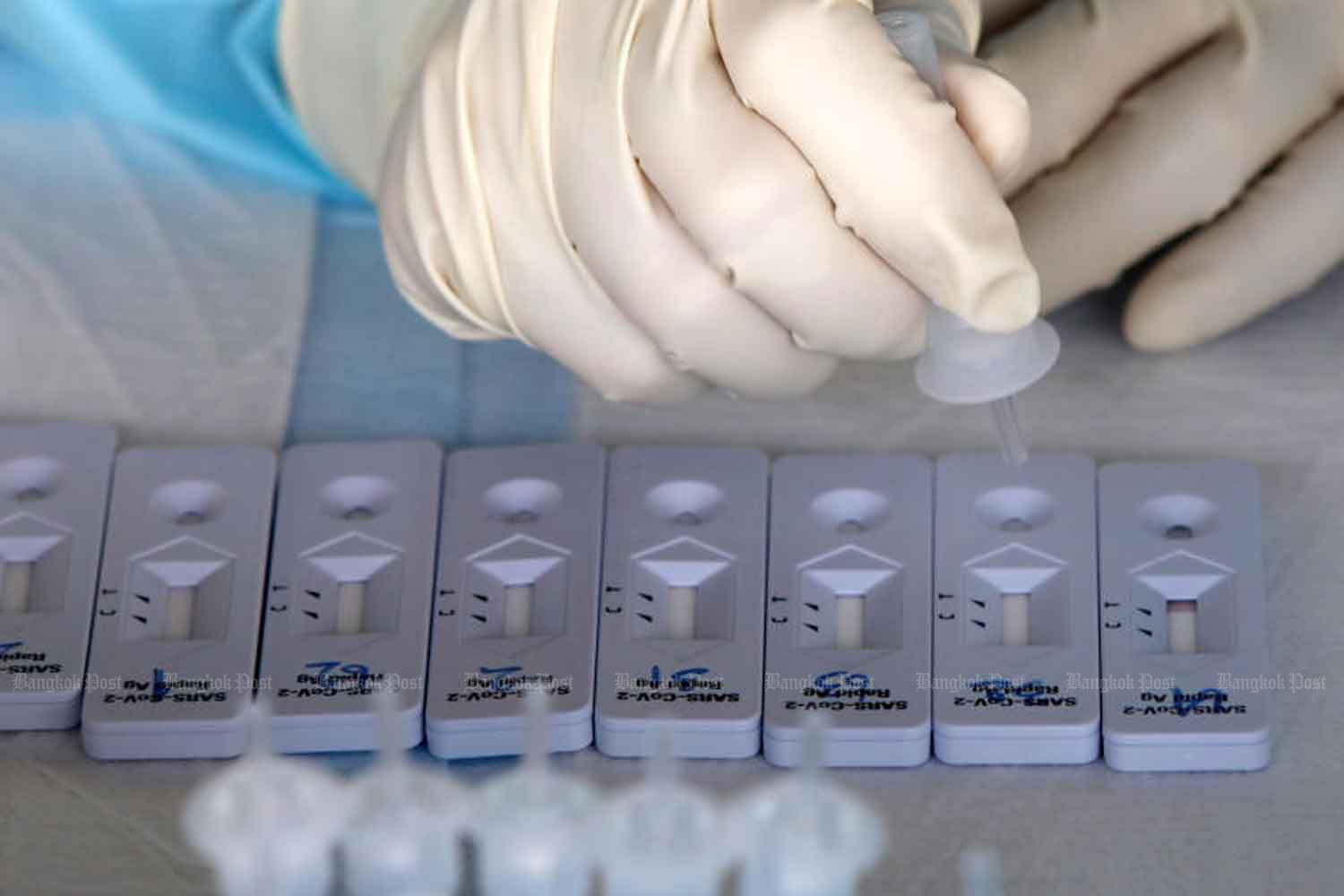
The Food and Drug Administration has approved and registered four rapid antigen Covid-19 test kits for home use.
FDA secretary-general Paisarn Dunkum said on Friday the rapid spread of Covid-19 had led to increasing demand for tests and people had to wait in long queues for RT-PCR tests.
The registration of rapid antigen test kits would allow people to more easily become aware of their infection, enter isolation and receive early treatment, he said.
People would be able to buy the test kids at hospitals, government organisations and drug stores with duty pharmacists who could advise them on proper use and disposal.
The FDA named the four approved products at https://www.fda.moph.go.th/sites/Medical/SitePages/test_kit_covid19.aspx.
They are
- Standard Q COVID-19 Ag Home Test produced by SD Biosensor Inc of Korea and imported by MP Group (Thailand);
- SARS-CoV-2 Antigen Self Test Nasal produced by SD Biosensor Inc of Korea and imported by Roche Diagnostics (Thailand);
- SARS-CoV-2 Antigen Test Kit (GICA) produced by Shenzhen Kisshealth Biotechnology and imported by General Science Enterprise; and
- SARS-CoV-2 Antigen Rapid Test Kit (Golloidal Gold Immunochromatography) produced by Beijing Lepu Medical Technology and imported by Ostland Capital.
Dr Paisarn warned that people should not buy such test kits from other sources because they could receive substandard products.
There was no information on the likely cost or when the kits would be available.
Apisamai Srirangson, a spokeswoman for the Centre for Covid-19 Situation Administration, said later that the accuracy of the antigen test kits would be lower than RT-PCR tests, but would be better than no test at all.
"No matter how much the RT-PCR tests are expanded, they can never catch up with the present rapid outbreaks,” she said.
Those who tested positive with an antigen test kit should contact local health facilities where medical workers could advise home isolation or community isolation. They did not have to go to large hospitals, she said.
Those who tested negative but were at risk of infection must repeat the antigen tests 3-5 days later, because the level of the virus might be too low to be detected in the first test, Dr Apisamai said.
She said that antigen test kits would be available at drug stores but not at convenience stores.